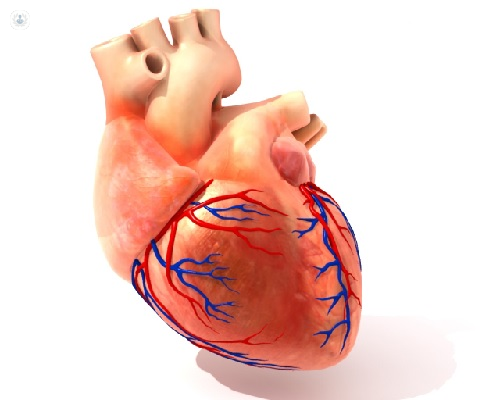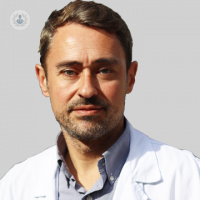How to prevent a heart attack
Written by:
The pain in the chest is the most frequent symptom that precedes a myocardial infarction, however, there are people who do not have defined discomforts and that complicates the diagnosis. In addition to identifying symptoms, control of risk factors is essential to prevent the disease.
What is myocardial infarction?
The word infarct refers to the death of a tissue, an organ, in our body, therefore myocardial infarction means death of a part of the heart. The most frequent cause of a part of the heart dying is that the blood supply that carries oxygen and nutrients has stopped coming. The blood flow stops reaching the part of the heart because it blocks a coronary artery , which are the arteries that are on the surface of the heart and that supply the heart muscle. This obstruction in the coronary arteries usually occurs because a plate of fat inside the artery breaks, and that rupture of the fatty plate causes the formation of a blood clot, a thrombus, which completely interrupts the passage of blood through it.

What are the symptoms of myocardial infarction?
The typical symptoms of acute myocardial infarction are several, the most important of them all is chest pain. There are many types of pains in the chest, the most characteristic of the infarction is an oppressive pain in the center of the thorax of a prolonged duration , because the pain of the infarction does not subside, and sometimes it goes to the left arm. goes towards the jaw, goes towards the upper part of the abdomen. In many cases it is also accompanied by what we call the vegetative procession, desire to vomit, cold sweat ... It must be taken into account that these symptoms are typical in some people, but many other people have a heart attack with symptoms that we call atypical, it is say, pains that are not like the ones that I have just described but that are punctures in other areas, ill-defined discomforts or even there are people who have heart attacks that do not hurt at all. Therefore this is what makes it difficult to assess chest pain, and to rule out myocardial infarction only with the symptoms is not worth it and we have to use, in addition, other tests such as the electrocardiogram and a blood test.
After a myocardial infarction are there limitations to lead a normal life?
The word myocardial infarction is very generic in the sense that it includes patients who have had large infarcts and other patients who have had very small infarcts, we could almost say microscopic and this is very important for the question we are addressing. Patients who have had a large heart attack can have an impact on their daily lives, they may notice greater weakness, more choking when they do physical exercise, but in many cases small or medium infarcts have no impact on day-to-day life of patients who have suffered a heart attack. In any case it is very important to try to avoid or minimize these limitations and these complications take the medication that is prescribed at the time of infarction that should not be taken only during admission but is a long-term medication.
What preventive measure should be taken after suffering the disease?
The prevention measures after suffering an acute myocardial infarction are the same ones that allow us to avoid it. The fundamentals are the control of what we call cardiovascular risk factors. The most important are hypertension, diabetes mellitus, high cholesterol, smoking.. Therefore, the patients' habit of life, nutrition and physical exercise are fundamental. For the control of the risk factors that I mentioned many times it is necessary medication, taking anti-hypertensive drugs in the case of high blood pressure, make a proper diet and also take oral drugs and other times insulins in the case of diabetes mellitus, taking drugs that are called statins for the proper control of cholesterol, of course completely abandon the habit of smoking and all this will allow us to smoke and not only that we do not have a first episode of myocardial infarction, which we can prevent, but also, once we have had it, minimize that this myocardial infarction is repeated in the future.


